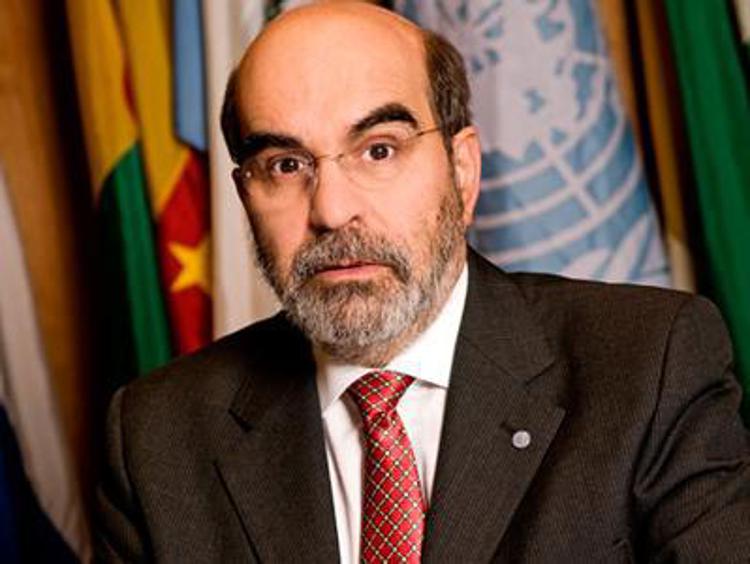

Future food must deliver healthy, high-quality food for all while safeguarding the environment, United Nations Food and Agriculture Organisation Director-General Jose Graziano da Silva said on Monday as he called for a transformation of food systems to improve people's diets.
"We need to change our focus from producing more food to producing more healthy food," Graziano da Silva said at the opening of an international symposium being held in Rome on Monday and Tuesday.
"Unfortunately, not all food that is considered safe is healthy. Trade must enable ways to bring healthy food to the table," said Graziano da Silva.
Government measures to ensure everyone eats healthy, nutritious food must take account of predictions that the number of obese people in the world will "very soon" exceed the 820 million who suffer hunger, he said.
More than 670 million adults aged 18 are obese, over 2 billion or more are overweight and nearly 2 billion people suffer from micronutrient deficiencies, according to the UN.
Rapid urbanization is one of several underlying factors driving the global pandemic of obesity and micronutrient deficiency, he stated. Another is the high consumption of ultra-processed food based on artificial ingredients which contain high levels of saturated fats, refined sugars, salt and chemical additives.
Graziano da Silva recommended that countries roll out a series of measures to ensure healthy, nutritious food for all. The measures include public policies and laws that contain effective incentives to ensure healthy diets and encourage the private sector to produce healthier food.
Examples include taxes on unhealthy food products; easier-to-understand and more comprehensive food labels; and restrictions on advertising of food, particularly for children, he said.
Secondly, governments should promote access to local and fresh food by creating local circuits of food production and consumption, Graziano da Silva said.
Thirdly, international trade agreements must be designed to influence food systems in a positive way to combat the current dominance of highly processed foods, he stated.
"Fourthly, the transformation of food systems starts with healthy soils, healthy seeds, and sustainable agricultural practices. The whole food system needs to be readdressed," said Graziano da Silva.
Graziano da Silva also highlighted the need to grow food in ways that protect the environment.
High-input and resource-intensive farming systems have boosted food production, but at an elevated cost to the environment, generating deforestation, water scarcity, soil depletion, and high levels of greenhouse gas emissions, he underlined.
Research plays a key role in transforming our food systems into ecological ones centred on the healthiness of what we eat rather than on the quantity of agricultural production, Graziano da Silva noted.
"We benefit from your work, and we need your guidance on what to do in the future," he said.
The two-day symposium brings together academics, researchers, policymakers, representatives from civil society and the private sector, parliamentarians and government agencies.